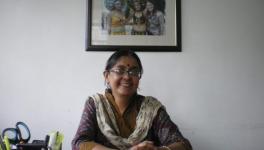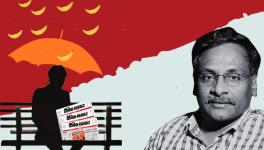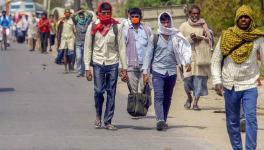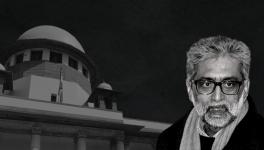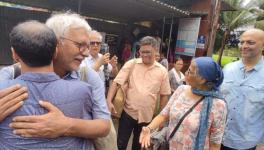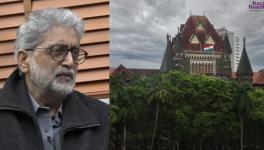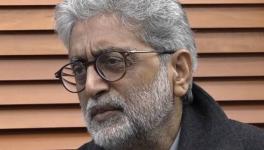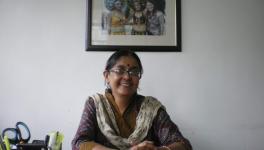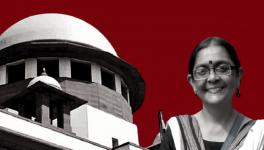Denial of Bail to Arrested Activists During Pandemic Is Double Persecution: PUDR
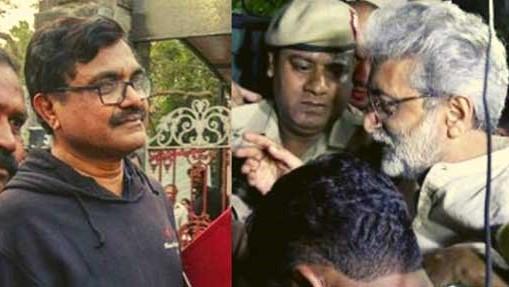
The People’s Union for Democratic Rights (PUDR) has released a statement condemning the recent rejection of the bail applications of Varavara Rao, Anand Teltumbde, Shoma Sen and Sudha Bhardwaj, who were arrested in relation to the Bhima Koregaon case. The statement said that the bail rejections as well as the sudden transfer of social activist, Gautam Navlakha, another arrested in the case, to another state raise serious concerns about the rights of political prisoners, especially at a time when the country is battling against the COVID-19 pandemic.
It added that “the institution of state-wise High Powered Committees with the mandate to ensure safety of prisoners and their recommendation to exclude temporary bail for those who are held under UAPA, and other serious laws and penal provisions, adds to these concerns”.
Terming the bail denials as ‘callous’, the statement said that these the arrested activists are being doubly penalised by being forced to live in overcrowded jails despite their age and health issues. It also highlights the medical conditions of the arrested political prisoners and adds that it is the responsibility of the state to ensure the safety and health of all prisoners.
In addition to denying bail, the courts have not even passed orders to keep these prisoners in safe surrounding within the jail, given their advanced age. The apathetic attitude of the authorities is visible from the fact that even “though the NIA admitted before the Mumbai special court on April 25 that one of its officers, in the police station where Teltumbde was kept for interrogation, had tested positive, the court turned down Teltumbde’s bail application and sent him to judicial custody at Arthur Road Jail, a COVID-19 hotspot”. Similarly, Navalakha was taken to Mumbai’s Taloja Jail on an overnight train, without informing his family and lawyers, which exposed him to the risk of being infected. “This was done solely to make infructuous his pending bail matter before the High Court,” the statement added.
The PUDR statement also said that the usual reason for denying bail do not apply in the case of these UAPA accused as “the prisoners are all public-minded individuals who have never attempted to abscond – two of them in fact surrendered for arrest on court orders. The case against them is based solely on electronic communication, all of which is in the NIA’s custody, and the charge sheet has been filed in court. None of them have ever been convicted of any previous offence.”
The exclusionary attitude towards a section of prisoners based on their alleged offence has led to these elderly and vulnerable inmates being forced to reside in abysmal prison conditions even during a pandemic. The group, therefore, appeals that the authorities must ensure the safety of all inmates and must be treated with a uniform policy.
The complete statement is given below.
PEOPLE’S UNION FOR DEMOCRATIC RIGHTS
01 June 2020
PRESS RELEASE
The Lessons of Bhima Koregaon: No Bail, Only Jail
With the surrenders of Anand Teltumbde and Gautam Navlakha on April 14, 2020 in Mumbai and Delhi respectively, the NIA, the investigative agency, has ensured the arrest of all 11 prominent human rights activists in the infamous Bhima Koregaon case under the draconian UAPA. The recent rejection of the bail applications of Varavara Rao, Anand Teltumbde, Shoma Sen and Sudha Bharadwaj, and the sudden transfer of Gautam Navlakha by the NIA, raise significant questions about the rights of political prisoners amidst the COVID-19 pandemic. The institution of state-wise High Powered Committees with the mandate to ensure safety of prisoners and their recommendation to exclude temporary bail for those who are held under UAPA, and other serious laws and penal provisions, adds to these concerns.
The bail denials are patently callous. The accusations against these prisoners, serious or otherwise, have been used to not only deny them bail but also doubly penalize them by forcing them to live in overcrowded jails despite their age and health issues. The life and health of all prisoners, convicted or undertrial, is the responsibility of the state which must ensure that all prisoners are safe and protected. All five inmates suffer from a range of medical ailments. 81-year-old Varavara Rao was hospitalized on May 28, 2020 after his persistent health issues could not be treated in Taloja Jail. He is a patient of multiple ailments including coronary artery disease. 70- year-old Anand Teltumbde has respiratory problems; 67-year-old Gautam Navlakha is a patient of colonic polyposis, chronic gastritis, and hypertension; 61-year-old Shoma Sen suffers from hypertension and arthritis; and 58-year-old Sudha Bharadwaj has a medical condition of hypertension and diabetes.
What is disturbing is that when denying them bail, courts have not even passed orders to keep these prisoners in safe surroundings within the jail, given their advanced age and ailments. Though the NIA admitted before the Mumbai special court on April 25 that one of its officers, in the police station where Teltumbde was kept for interrogation, had tested positive, the court turned down Teltumbde’s bail application and sent him to judicial custody at Arthur Road Jail, a Covid-19 hotspot. Sudha Bharadwaj had drawn the court’s attention to the fact that “social distancing” was impossible in the overcrowded wards of Byculla Women’s Jail, and that an inmate has recently tested positive for Covid-19. Yet, her bail application was turned down on May 29. And Taloja jail where Varavara Rao and Gautam Navlakha are lodged, also has a confirmed COVID-19 death.
Ordinarily, reasons for denying bail rest on the possibility of a prisoner (a) absconding on release; (b) tampering with evidence or influencing witnesses; or (c) committing another offence. However, in the case of these UAPA accused, the prisoners are all public-minded individuals who have never attempted to abscond – two of them in fact surrendered for arrest on court orders. The case against them is based solely on electronic communication, all of which is in the NIA’s custody, and the charge sheet has been filed in court. None of them have ever been convicted of any previous offence. In addition to being subjected to a fierce prosecution cum media attack, they have also been victim to surreptitious state actions. On May 25, the NIA whisked Gautam Navlakha from Delhi’s Tihar jail without informing his lawyer and family. This was done solely to make infructuous his pending bail matter before the High Court. In the process, Navlakha was exposed to the risk of being infected as he was taken on an overnight train journey.
Repeated rejections of interim bail petitions make clear that existing medical conditions of political prisoners are not regarded as reasonable grounds for bail, even in the context of a pandemic. These rejections are outcomes of mechanical decisions taken by High-Powered-Committees. The security considerations which prompt these Committees to exclude a section of prisoners based on their alleged offence, has in effect, condemned these elderly and vulnerable inmates to reside in abysmal prison conditions in COVID times. Such denial of bail are acts of persecution committed against those who have existing medical vulnerabilities. The fear of infection is extremely high in overcrowded jails, known for their insanitary and inhuman conditions. In COVID-19 times, especially when Maharashtra has emerged as the state with the highest number of cases (62,228 as of May 29), differentially treating bail petitions by political prisoners is gross injustice. The utter helplessness of the prisoner is evident from the hospitalization of Varavara Rao, and from the case of Gautam Navlakha who was not produced before the court that granted permission for his transfer nor allowed to inform his family or lawyer.
The health and safety of political prisoners must be treated with the same urgency as that of other prisoners. Amidst this unprecedented pandemic, a uniform policy is needed to ensure the survival of inmates.
Radhika Chitkara and Vikas Kumar
Secretaries, PUDR
Get the latest reports & analysis with people's perspective on Protests, movements & deep analytical videos, discussions of the current affairs in your Telegram app. Subscribe to NewsClick's Telegram channel & get Real-Time updates on stories, as they get published on our website.









